Age and the F1 driver - from teenage stars to fast 50-year-olds
If you’re good enough, you’re old enough.
This phrase was coined by fabled Manchester United manager Sir Matt Busby in the 1950s in reference to his unusually young but (ultimately) incredibly successful team, but it could just have easily have been uttered by Red Bull’s motor sport consultant Helmut Marko.
The Austrian, who oversees Red Bull’s prestigious junior team, helped Sebastian Vettel, Daniel Ricciardo, Jean-Eric Vergne and Daniil Kvyat graduate to F1 aged 19, 22, 21, and 19 respectively, and only recently he was instrumental in 2015 Toro Rosso driver Max Verstappen making his practice debut in Japan just three days after the Dutchman had blown out the 17 candles on his birthday cake.
Marko’s continued faith in youth is one of the major reasons why the Formula One grid is currently at an all-time low in terms of average driver age, though the downward trend has been going on since the early 1990s when, thanks to the arrival of drivers such as Rubens Barrichello (who made his debut in 1993 aged 20), the average age began to dip below 30.
It’s all a far cry from the early years of the world championship when, somewhat surprisingly by today’s sporting standards, the majority of the leading drivers were in their forties. Nino Farina was only a couple of months away from his 44th birthday when he clinched the inaugural world title in 1950, whilst legendary Argentine racer Juan Manuel Fangio won his fifth and final drivers’ crown at 46 and his last victory aged 47. Meanwhile, Fangio’s shared victory with Luigi Fagioli at the 1951 French Grand Prix made the Italian the oldest winner in F1 history, Fagioli being a spritely 53 at the time.
But the granddaddy of them all was Louis Chiron who is unlikely to ever be surpassed as the oldest man to start a Grand Prix. The Monegasque racer was 55 when he started the 1955 Monaco Grand Prix and he only narrowly missed the cut for the same race three years later at the tender age of 58…
Of course, having cut their teeth in the great pre-war era the likes of Farina, Fangio, Fagioli and Chiron were already experienced racers by the world championship’s inception, and it was only a matter of time before they were replaced by a new generation of younger drivers. Indeed, by the end of the 1950s not only had the average age of competitors dropped to the early thirties, but 22-year-old Bruce McLaren had become the sport’s youngest ever winner - a record that would stand for over 40 years before it was eclipsed, first by Fernando Alonso in 2003 and then by Sebastian Vettel in 2008.
Between 1960 and 1993, the average age for an F1 driver hovered around 32, although Jack Brabham and Graham Hill both won races their forties (as did Nigel Mansell in 1994). Today, there are only five drivers on the grid over the age of 30 – Jenson Button, Kimi Raikkonen, Fernando Alonso, Felipe Massa and Adrian Sutil, whilst the average age of those lining up to contest the 2014 Formula 1 Rolex Australian Grand Prix in March was just 26 years and 358 days.
Furthermore, whilst the vast majority of championships between 1960 and 1993 were won by racers in their thirties, only three 30-something champions have been crowned since - Damon Hill, Mika Hakkinen and Michael Schumacher. All five champions on the current grid are either still in their twenties or won the title before turning 30.
It’s unsurprising then that a whole host of age-related records have been set and re-set in recent years, largely by Red Bull-backed drivers. Vettel can lay claim to having been F1’s youngest winner, polesitter, champion and quadruple champion, whilst in Australia earlier this year Kvyat surpassed both Vettel and former Toro Rosso driver Jaime Alguersuari (still the youngest man to start a Grand Prix) to become the sport’s youngest points scorer. Meanwhile in the same race, McLaren’s Kevin Magnussen became the second youngest podium finisher in history.
Interestingly, Vettel was also part of Grand Prix racing’s youngest ever podium when he shared the 2008 Italian Grand Prix rostrum with Heikki Kovalainen and Robert Kubica. Their average age? 23 years and 356 days - a scant 23 years and 82 days younger than Farina, Fagioli and Louis Rosier who stood on F1’s oldest podium at the 1950 Swiss Grand Prix with an average age of 46 years and 274 days.
To put that last point in perspective, Jos Verstappen - Max’s father, a veteran of 106 Grands Prix and himself the 13th youngest podium finisher in history - will only be 43 when his son becomes the youngest driver to start a world championship race.
The Toro Rosso youngster will be just the ninth teenager - after Ricardo Rodriguez, Chris Amon, Mike Thackwell, Esteban Tuero, Fernando Alonso, Vettel, Alguersuari and Kvyat - to start a Grand Prix. It’s unlikely he’ll be the last…
Youngest drivers to win a Grand Prix:
Sebastian Vettel, Italy 2008, 21 years & 73 days
Fernando Alonso, Hungary 2003, 22 years & 26 days
Troy Ruttman, 1952 Indianapolis 500, 22 years & 80 days
Bruice McLaren, USA 1959, 22 years & 104 days
Oldest drivers to win a Grand Prix:
Luigi Fagioli, France 1951, 53 years & 22 days *shared drive
Nino Farina, Germany 1953, 46 years & 276 days
Juan Manuel Fangio, Germany 1957, 46 years & 41 days
Youngest drivers to become world champion:
Sebastian Vettel, 2010, 23 years & 134 days
Lewis Hamilton, 2008, 23 years & 300 days
Fernando Alonso, 2005, 24 years & 59 days
Oldest drivers to become world champion:
Juan Manuel Fangio, 1957, 46 years & 41 days
Nino Farina, 1950, 43 years & 308 days
Jack Brabham, 1966, 40 years & 155 days
Youngest drivers to have set pole position:
Sebastian Vettel, 2008, 21 years & 72 days
Fernando Alonso, Malaysia 2003, 21 years & 236 days
Rubens Barrichello, Belgium 1994, 22 years & 97 days
Oldest drivers to have set pole position:
Nino Farina, Argentina 1954, 47 years & 79 days
Juan Manuel Fangio, Argentina 1958, 46 years & 209 days
Jack Brabham, Spain 1970, 44 years & 17 days
Youngest drivers to have started a Grand Prix:
Jaime Alguersuari, Hungary 2009, 19 years & 125 days
Mike Thackwell, Canada 1980, 19 years & 182 days
Ricardo Rodriguez, Italy 1961, 19 years & 208 days
Oldest drivers to have started a Grand Prix:
Louis Chiron, Monaco 1955, 55 years & 292 days
Philippe Etancelin, France 1952, 55 years & 191 days
Arthur Legat, Belgium 1953, 54 years & 232 days
Youngest drivers to have scored one or more point:
Daniil Kvyat, Australia 2014, 19 years & 324 days
Sebastian Vettel, USA 2007, 19 years & 349 days
Jaime Alguersuari, Malaysia 2010, 20 years & 12 days
Oldest drivers to have scored one or more point:
Philippe Etancelin, Italy 1950, 53 years & 249 days
Luigi Fagioli, France 1951, 53 years & 22 days
Louis Chiron, Monaco 1950, 50 years & 291 days
Youngest drivers to have finished on the podium:
Sebastian Vettel, Italy 2008, 21 years & 73 days
Kevin Magnussen, Australia 2014, 21 years & 162 days
Fernando Alonso, Malaysia 2003, 21 years & 237 days
Oldest drivers to have finished on the podium:
Luigi Fagioli, France 1951, 53 years & 22 days
Louis Chiron, Monaco 1950, 50 years & 291 days
Felice Bonetto, Netherlands 1953, 49 years & 363 days
Next Up
Related Articles
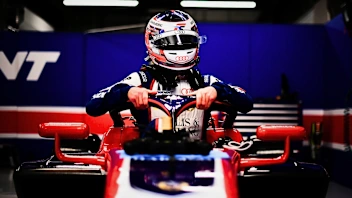 Unlocked5 of the best young drivers waiting for an F1 chance
Unlocked5 of the best young drivers waiting for an F1 chance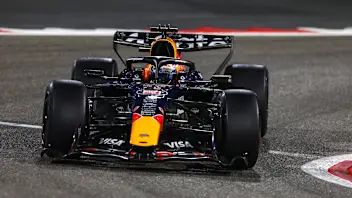 BettingCommon F1 betting and gambling myths debunked
BettingCommon F1 betting and gambling myths debunked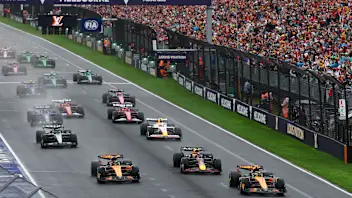 What time is the 2026 Australian GP and how can I watch it?
What time is the 2026 Australian GP and how can I watch it?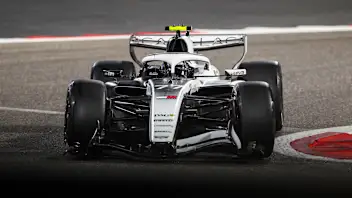 Cadillac confirm first upgrades for Australia debut
Cadillac confirm first upgrades for Australia debut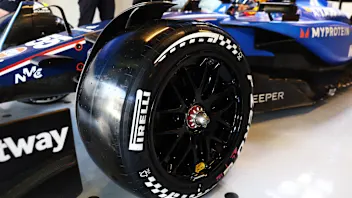 What tyres will the teams and drivers have in Australia?
What tyres will the teams and drivers have in Australia? Listen to F1 Nation's 2026 season preview
Listen to F1 Nation's 2026 season preview